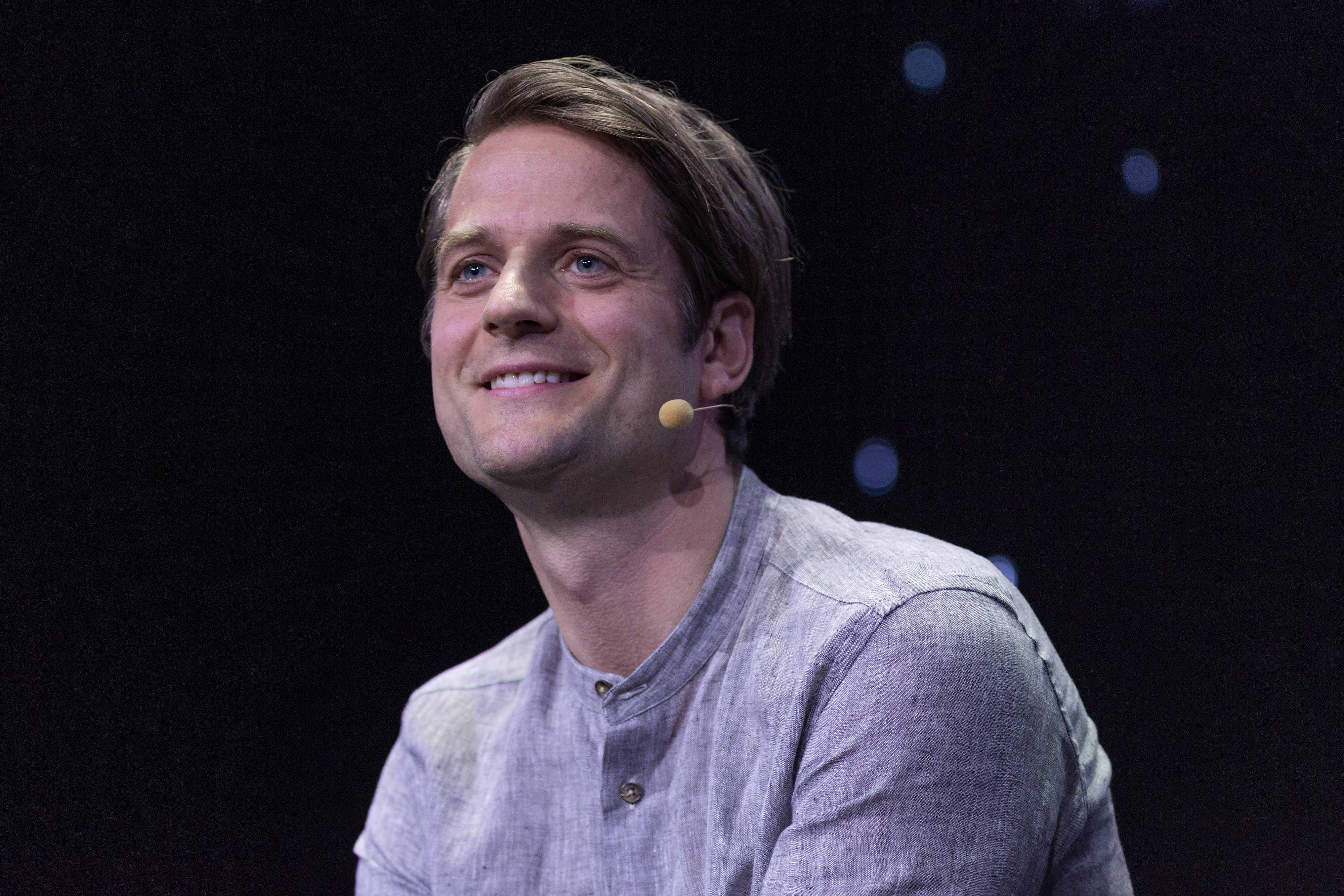Klarna CEO Sebastian Siemiatkowski speaks at a technology and music conference in Stockholm, Sweden.
Johan Jeppsson | Bloomberg via Getty Images
Swedish financial technology start-up Klarna has reported an annual loss for the first time, following years of profitability.
Klarna, which lets people buy items online and pay for them over instalments, reported a loss of 1.1 billion Swedish krona ($113 million) on revenues of 7.2 billion krona from January to December 2019.
That puts its accounts in the red for the first time since it was founded in 2005. Klarna had enjoyed the unusual status of being a profitable fintech for years thanks to deals with big-name retailers. Last year, it reported 2018 profits of 161 million krona, which was down from 346 million krona the previous year.
Overall the business is “very healthy” and is seeing “strong growth” in transaction volumes, revenues and merchant growth, the spokesperson added. The company reported a 31% rise in revenues in 2019, while it also added 75,000 new merchants to its platform.
A key reason behind the 2019 loss was an increase in investment into establishing an engineering hub in Berlin, as well as a focus on growth in the U.S. Klarna said it also plans to expand to “a number of new markets this year.”
The company, which counts American rapper Snoop Dogg and Swedish retail group H&M among its investors, has taken on over $1.4 billion in external financing and was last year valued at $5.5 billion following a $460 million funding round. It’s now tied with digital banking app Revolut as the most valuable fintech start-up in Europe. And with a market value of more than $1 billion, it’s one of a growing class of so-called “unicorn” firms in the continent.
Klarna essentially works as an alternative to a credit card. Once a user buys from a retailer using its payment platform, the firm offers them interest-free financing which is typically paid off in monthly instalments. The company sources its revenues from fees to retail clients as well as interest from customers who pay late.
It’s been the subject of much speculation over a potential initial public offering, and CEO Sebastian Siemiatkowski last year said the company was near a stage where it could consider going ahead with a float. Europe suffered a lukewarm year of tech IPOs in 2019, following successful floats from the likes of Adyen and Spotify a year prior.
